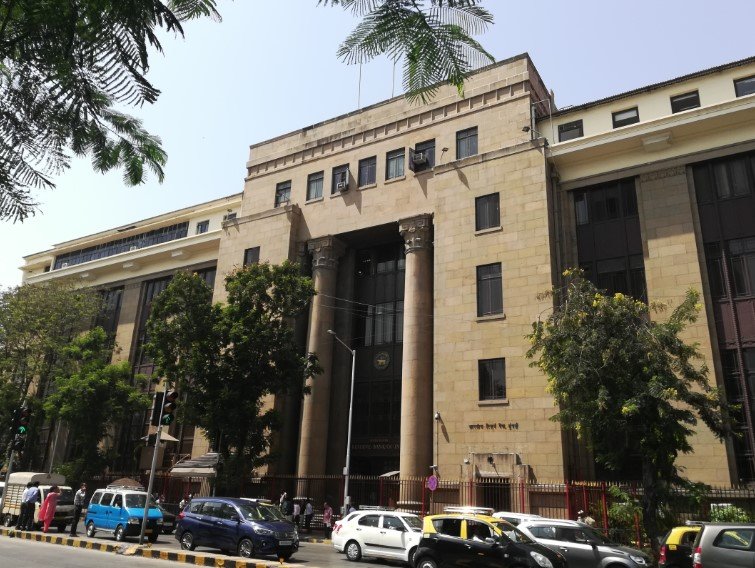The Reserve Bank of India hit four cooperative banks with a total penalty of Rs20.8 lakh on September 2, 2025, for failing to follow key banking rules. The biggest fine went to Surat Peoples Cooperative Bank at Rs18.3 lakh, while three branches of Jilla Sahakari Kendriya Bank Maryadit in Madhya Pradesh faced Rs2.5 lakh combined, highlighting ongoing issues in regulatory compliance among smaller banks.
This action stems from inspections that uncovered delays in reporting large loans and unclaimed funds. As India’s central bank ramps up oversight, these penalties serve as a reminder for banks to stick to guidelines that protect depositors and maintain financial stability.
Details of the Penalties
Surat Peoples Cooperative Bank, based in Gujarat, received the heaviest penalty for not reporting large borrower details to the Central Repository of Information on Large Credits, known as CRILC. This system helps track big loans across banks to spot risks early.
The bank’s failure to submit timely data on certain loans broke specific RBI directions for urban cooperative banks. Officials noted this during a routine check, leading to the fine after reviewing the bank’s response.
In Madhya Pradesh, three branches of Jilla Sahakari Kendriya Bank Maryadit also faced penalties. The Ujjain and Narmadapuram branches each got Rs1 lakh, and the Damoh branch was fined Rs50,000.
These fines came from delays in moving unclaimed deposits to the Depositor Education and Awareness Fund, or DEA Fund. This fund uses forgotten money to educate people about banking rights and safety.
Reasons Behind the Violations
RBI’s inspections often reveal such lapses in smaller banks due to limited resources or oversight gaps. For Surat Peoples Cooperative Bank, the CRILC reporting issue points to weaknesses in tracking high-value loans, which could lead to unchecked risks in the system.

Experts say timely CRILC updates help prevent bad loans from building up, as seen in past banking crises. The bank’s delay might stem from internal process flaws, but RBI stressed the penalty targets compliance, not the loans themselves.
For the Madhya Pradesh branches, the DEA Fund transfer delay means unclaimed amounts sat idle instead of funding awareness programs. This rule ensures banks handle dormant accounts properly, protecting customer interests.
Similar issues have popped up in other coop banks recently. In fact, RBI data shows over 260 penalties on cooperative banks in fiscal year 2025 alone, totaling Rs15.63 crore, mostly for governance and reporting slips.
Broader Impact on Banking Sector
These fines fit into RBI’s tougher stance on compliance in 2025. With economic growth pushing more lending, the regulator wants to curb risks in cooperative banks, which serve millions in rural and urban areas.
Cooperative banks handle about 10 percent of India’s banking assets, but they often face higher non-performing loans due to lax controls. This year’s penalties aim to strengthen that.
Here are some key stats on RBI penalties in 2025:
- Total penalties on all regulated entities: Rs54.78 crore
- Penalties on cooperative banks: 264 cases
- Common violations: KYC lapses, loan reporting delays, and fund transfer failures
Banks like these must now review their systems to avoid future hits. For customers, it means better protection as rules get enforced more strictly.
How Banks Responded and Next Steps
All four banks got a chance to explain during hearings. RBI reviewed their replies and oral arguments before deciding the charges held up.
The central bank made clear these penalties do not question any customer deals or bank agreements. Instead, they push for better practices without disrupting daily operations.
Looking ahead, affected banks will likely tighten internal checks. Surat Peoples Cooperative Bank, for instance, might invest in better reporting tools to meet CRILC deadlines.
| Bank/Branch | Penalty Amount (Rs) | Reason for Penalty |
|---|---|---|
| Surat Peoples Cooperative Bank | 18,30,000 | Delayed CRILC reporting on large borrowers |
| Jilla Sahakari Kendriya Bank Maryadit – Ujjain Branch | 1,00,000 | Delayed transfer to DEA Fund |
| Jilla Sahakari Kendriya Bank Maryadit – Narmadapuram Branch | 1,00,000 | Delayed transfer to DEA Fund |
| Jilla Sahakari Kendriya Bank Maryadit – Damoh Branch | 50,000 | Delayed transfer to DEA Fund |
This table breaks down the specifics, showing how RBI tailors fines to the violation’s scale.
What This Means for Customers and the Industry
For everyday bank users, these actions boost confidence in the system. Rules like CRILC and DEA Fund exist to spot troubles early and use unclaimed cash for good.
Industry watchers see this as part of RBI’s 2025 push for digital compliance tools. With fintech rising, traditional banks must keep up or face more scrutiny.
Recent events, like penalties on other coop banks in Karnataka and Tamil Nadu earlier this year, show a pattern. RBI fined five such banks just last month for similar reporting issues, totaling over Rs2 lakh.
If you’re a customer or investor, check your bank’s compliance record. It could signal how well they manage risks.
Share your thoughts on these RBI moves in the comments below, and pass this article along to others interested in banking news. Your input helps us cover what matters most.








